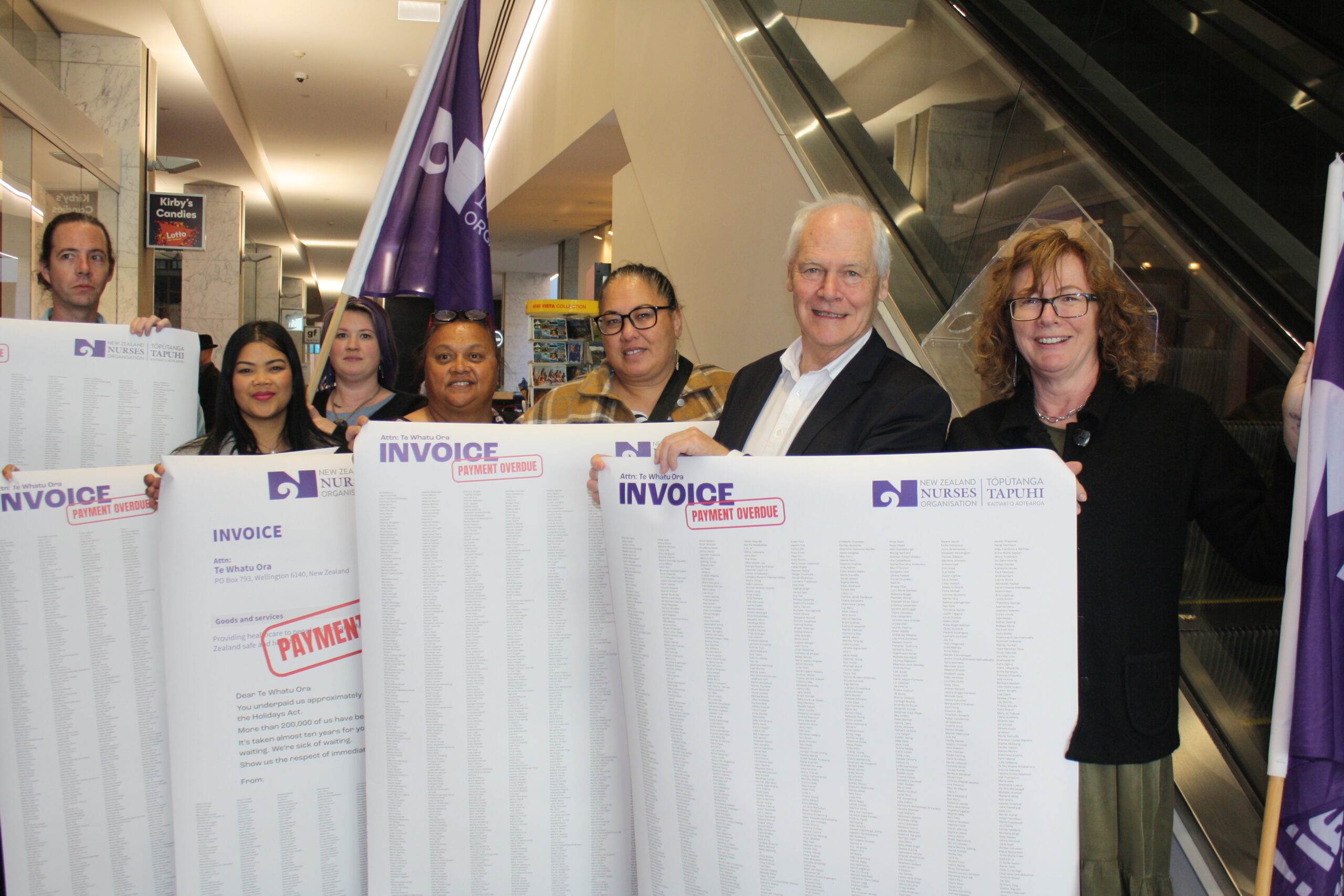“On one hand, it feels really good that we’ve got some movement,” an emotional Hellyer told Kaitiaki. “On the other hand, some of my friends have died waiting for this payment and that does not feel good.”

On November 14, Te Whatu Ora paid $15.2 million it owed to about 4120 current Te Whatu Ora Hawke’s Bay staff including nurses, HCAs, doctors, allied health staff, cleaners and administrators.
The payment follows a 14-year battle by health and other workers after many payroll systems failed to capture the new leave entitlements set by the 2003 Holidays Act.
Payments ranged from 20c to $20,000 per person in Hawke’s Bay, said Hellyer. But the majority of registered nurses got somewhere between $6000 and $12,000 after tax, she said.
“To say staff were pleased is an understatement,” said Hellyer who has been involved for more than 10 years.
Hellyer said getting holiday back pay had been a “hell of a fight” after many delays over the years. “We’ve had to wait and we’ve had goal posts jump out of nowhere – we’ve had 12 goes at paying [postponements before this month]”
‘I’m going to hang in there and push before the end of 2025. I’ll be watching and holding them to their promised date.’
Hawke’s Bay staff had expected their remedied holiday pay in August — but it never came, she said. “We were all waiting with bated breath and bank statements in hand and [Lester Levy] pulled the pin and didn’t tell anyone.”
Te Whatu Ora acting chief executive Dale Bramley said the Hawke’s Bay payment followed 14 years of “complex and time-consuming work”.
“The payment to Hawke’s Bay staff takes the total amount paid so far nationally to over $254 million across 34,300 current employees.”
Nationally, about 90,000 current staff and 130,000 former staff were owed an estimated $1.405 billion in leave payments dating back to May 1, 2010, he said.
Current staff at Auckland, Counties Manukau and Waitematā regions got their payments last year, as well as four former shared health services (Health Alliance, Health Partnerships, Health Source and Northern Region Alliance).
That left an estimated $1.151 billion still to be paid out to current and former staff — debt which Te Whatu Ora says will be fully paid by the end of 2025.

Levy now wanted remaining Holidays Act remediation payments made “as quickly as practical” with several pending before Christmas, Bramley said. However, it could not yet confirm which regions were next in line.
‘So it’s a sad win — it is a happy win for those I could help, but sad for those I couldn’t.’
Hellyer said she would not rest until everybody who was owed, past and present, got their money, including the families of those who had died.
“I’m going to hang in there and push before the end of 2025,” she told Kaitiaki. “I’ll be watching and holding them to their promised date.”
She had fought — and lost — a battle to include back pay for people’s earlier roles if they had changed jobs within Te Whatu Ora. “So it’s a sad win — it is a happy win for those I could help, but sad for those I couldn’t.”
Holiday payments for all by the end 2025
Te Whatu Ora has told Kaitiaki it will settle payments for current staff by mid-2025. Payments for former staff would begin in early 2025 and be completed by the end of 2025.
Last month, frustrated NZNO delegates presented Te Whatu Ora chief executive Margie Apa with a giant $2.1 billion invoice for holiday leave back pay for 200,000-plus staff.
Apa said she recognised nurses’ and kaiāwhina frustration over how long the remedies had taken.
“Nothing would make me happier than to see these payments being made and the money owed going to our staff.”
Background
Problems with district health board (DHB) payroll systems first emerged in 2010.
Payroll glitches after the 2003 Holidays Act came in meant tens of thousands of health and other workers were for years underpaid their holiday entitlements by DHBs.
Other organisations such as New Zealand Police, NZ Blood Service, Heinz-Watties and even the Ministry of Business, Innovation and Employment which manages the law, were also affected.
In 2016, the Council of Trade Unions proposed a national approach to DHB holiday pay remediation. But the 20 health regions have continued to work through the backpay at varying rates, due to their different payroll systems.
In Hawke’s Bay, Hellyer said she became a “pain in everybody’s arse” until a union/DHB working group formed in 2020 to tackle the issue.
But progress was slow as health managers, unions and members argued over how to fix the complex and expensive problem — and who would be eligible.
Te Whatu Ora’s holiday remediation payment updates can be found here.




